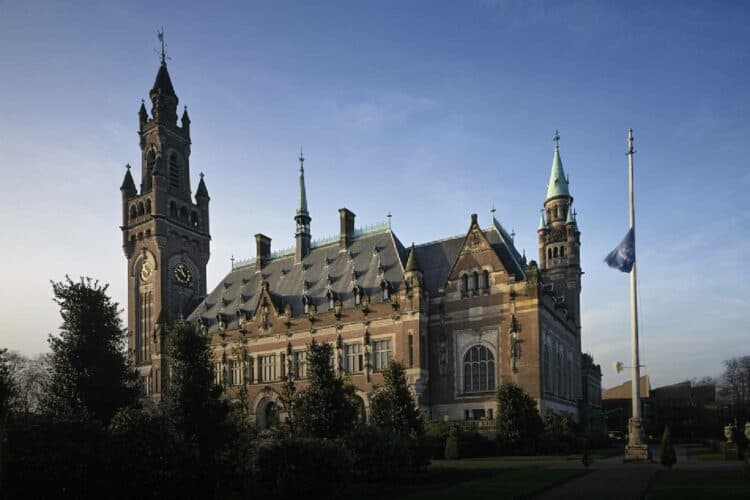On Thursday, the International Court of Justice (ICJ) largely rejected Ukraine‘s accusations against Russia concerning the alleged funding of separatist rebels in Eastern Ukraine.
Why did the ICJ reject Ukraine’s claims about Russia?
In its merits, Ukraine had labelled Russia a “terrorist state,” alleging its support for pro-Russian separatists in Eastern Ukraine was a precursor to the 2022 full-scale invasion.
Ukraine sought compensation for civilians affected in the conflict, including victims of the Malaysia Airlines flight MH17, shot down over Eastern Ukraine in 2014.
However, the ICJ declined to rule specifically on Russia’s alleged responsibility for the plane’s downing. The court dismissed most of Ukraine’s pleas, finding that only cash transfers could be considered support for alleged terrorist groups under the international convention on terrorism financing.
This excludes means used to commit acts of terrorism, such as weapons or training camps.
The ICJ’s decision indicated that allegations of weapons supply to armed groups operating in Ukraine fall outside the material scope of the international convention on terrorism financing.
Is Russia a ‘terrorist state’?
While the court dismissed most of Ukraine’s claims, it ruled that Russia had failed to investigate persons who allegedly breached parts of the Convention against Financing Terrorism.
Additionally, regarding Crimea, the court found that Russia violated the Convention to Eliminate Racial Discrimination by inadequately implementing its educational system related to curricula in the Ukrainian language.
Ukraine’s representative in the case, Anton Korynevych, expressed that despite the setbacks, the verdict still holds substantial value as it marks the first instance of Russia being officially recognised as a violator of international law.
Russia was also accused of breaching an international convention on racial discrimination due to its treatment of the Tatar minority and Ukrainian speakers in occupied Crimea.
The case, which began in 2017, is part of Ukraine’s broader strategy of “lawfare” against Russia, encompassing various legal battles over maritime law and alleged human rights abuses.
The ICJ’s rulings are final and without appeal, but the court lacks enforcement power.
For instance, a previous emergency ruling by the ICJ ordering Russia to halt its invasion of Ukraine was not adhered to.






